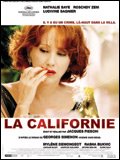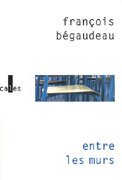Magical Mystical Tour

 When I was holidaying in London in early 2001, I went to see a tarot reader. After a thoughtful harrumph and a quick fiddle with the cards, he shuffled a few phrases: You aren't from here. You don't want to leave London. You'll be back. Very soon.
When I was holidaying in London in early 2001, I went to see a tarot reader. After a thoughtful harrumph and a quick fiddle with the cards, he shuffled a few phrases: You aren't from here. You don't want to leave London. You'll be back. Very soon.He was right. Within months I was living there.
Ok, with my quirky accent and cotton winter coat I was clearly someone who didn't come from those parts. We conducted the reading behind a souvenir stand in touristic Covent Garden, speaking above the tinkling of a trillion london bus keyrings. Tourist = on holidays = probably doesn't want holiday to end. May even come back.
I love seeing tarot readers. The cards are mere props. Over the years my tarot readers have acted as an army of psychologists for me. They are much less expensive than professional psychologists and many times I've managed to have an "off the cards" talk with a tarot reader which has equipped me with the necessary boot in my thought patterns for whatever I may have to kick through. Although that is not always the case.
In New York when I was in one of those re-building periods of my life, I saw a sign: "Tarot Reading - Five Dollars".
After climbing a staircase in need of a creak, a door opened and through the smog of incense I greeted a woman. She was wearing a scarf around her head and the hoop earrings considered mandatory among some "professional" tarot readers.
Behind her was a sign that read: "Three questions - five dollars/Tarot reading - twenty dollars".
"Oh", I said, remembering that I'd just moved into my new place and I was now a fully-fledged rent payer so I needed to save my pennies before they hatch, "What's three questions?"
She grabbed my arm and stained me with a yellow-eyed stare, so yellow that I thought her liver was in her brain, and hissed dramatically: "Forget three questions, you need a tarot reading".
"Nah, I can't", I shook my head, starting to turn away. She leant against the wall and began to ooh and ahh like a poodle in pain, and I thought of Basil Fawlty, who pretends to have a bit of shrapnel in his leg from the war, whenever he wants to prevent people from doing something he doesn't want them to do.
"You alright?"
"It's just that I can feel your darkness", she moaned.
I now recalled a soothsayer from yonder days in Sydney, a homeless woman, who, when I was standing not far from her, said to me: I know that evil walks the streets but do you have to stand so close.
My curiosity was piqued by the word darkness and what now seemed to be a persistent theme in my life and within moments the tarot reader had me in a windowless room, sitting at a table of what appeared to be half-eaten tarot cards. She spoke with a heavy eastern european accent which I think was an artifice to make people believe she is authentic. But I had the impression that it was a flimsy (and in any case unnecessary) prop. Like in one of those courtroom dramas where someone makes a loud noise, lets off a gun or whatever, to make the person who has lodged a false claim for insurance because of a neck injury, suddenly turn their head, I felt that if I placed an angry spider in her hand she would no doubt start to scream and swear in a broad New York accent.
"Do I get to ask three questions?"
"Well that was one already. Just ask another one inside your head, or else you'll upset the room. Don't worry, it will be answered in the reading."
Sorry room, I said, looking around at what was more like a closet.
She had an interesting tarot reading technique, that is, she didn't actually look at the cards that I'd carefully selected at her command. She just nursed them in her hands and explained to me matter of factly that I have a lot of darkness because there are lots of people around me who envy me and want to do me harm.
Suddenly my life was getting exciting. Oh yeah? I said happily, why do they envy me?
I don't know, she shrugged.
I tried to get her to explain whether the darkness surrounding me was actually other people's darkness or if darkness, provoked by the dark forces who want to do me harm, was emanating from me.
She avoided the question but confirmed that things were fairly dark. Then she offered to burn my darkness away...for another twenty dollars.
"I'll keep my darkness and the twenty dollars. My darkness is rather becoming, don't you think?"
She shook her head as if to say "the kids of today".
"What about my question? It wasn't answered!"
"Sorry but you just asked another question so you've used up all your questions now," and she dismissed me with a wave of an incense stick.
As well as being a tarot reader groupie, I've also dabbled in giving tarot readings of my own to friends and acquaintances and I'd like to think I've given some fairly spot on readings.
I've often fancied myself as having special powers. Once in the heat of a sweltering tarot reading, where the cards were like a mixed bag of lollies full of all my favourite colours: success, love, creative heights, I babbled to the tarot reader: so do you feel something special about me - like I have a power?
She scrutinised me for a long time and then said "No".
"But I think you have some kind of, how do you say, inflammation at the moment don't you?", she added.











